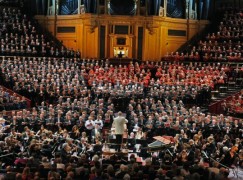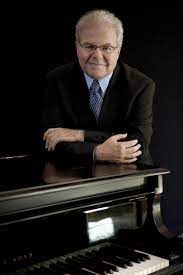Queering Handel’s Messiah
OrchestrasClassical Uprising of Portland, Maine, are collaborating with ChamberQUEER of Brooklyn in putting on two performances of the popular oratorio this weekend. Here’s an extract from the extensive programme note by Dr Emily Isaacson:
Why mess with Messiah? So that more people can share in its power.
Messiah, by George Frideric Handel (1685–1759), tells the story of one man’s work to make his world a better place. The original composition was conceived as an Easter offering that chronicled Jesus’s birth, death, and resurrection. On a macro level, this is a story of creation, struggle, and transformation. This macro narrative is universal, and Handel’s music manifests these human experiences with incredible eloquence, but on a micro level, the details are limiting to other religions and frameworks of identity. Messiah Multiplied employs Handel’s powerful music, modifying and emboldening the libretto to reflect a more universal and inclusive story.
To be clear, we do not intend this project to be anti-religion or anti-classical canon. Quite the opposite. Repositioning the story allows it to resonate with Jewish and ecumenical traditions. Reimagining the text lets it speak to a 21st-century audience. Messiah Multiplied, like so much of Classical Uprising’s work, is inspired by a belief that classical music must rise up, challenge current norms, and re-envision where, how, and for whom we are making music. Our era is marked by an unwillingness to listen to one another; we choose communities and news sources that reinforce our existing views and villainize alternative opinions. Messiah Multiplied galvanizes Handel’s seminal work to help people better understand themselves and each other, and to serve as a tool for discussion, connection, and acceptance.
While this approach may seem brazen, the ethos of Messiah Multiplied is anchored not only in Handel’s music but in the artistic traditions of the Baroque era.
Handel, like many Baroque composers, prioritized the performance experience over an “accurate” rendition of the original score. From the work’s inception in 1741 to Handel’s death in 1759, the composer constantly modified Messiah, as academics explain, to bring new interest to audience members, to oblige the needs of a particular soloist, or to compensate for changing performance conditions. Ultimately,
nearly a third of Messiah underwent revision during Handel’s lifetime, with some arias and choruses existing in three or four different versions. As scholar Jens Peter Larsen explains: ‘The basic question is whether we can talk at all correctly of an “authentic” form of Messiah, understood in our later sense as a final version which as a whole and in details presents the composer’s ultimate view of the form in which he wished to hand down his work to posterity. Strictly speaking, there is no such version.’ For Handel, Messiah was a fluid document intended to be altered for different audiences, not a rigid work of art…
Classical Uprising and ChamberQUEER aspire to make classical music more inclusive, but this project strives for an even loftier goal: to encourage our audience to ask what we can all do to bring about acceptance. Our world is suffering from our inability to speak without yelling and to listen to ideas different from our own. Without civil discourse and without accepting our shared differences as being
worthy of kindness and compassion, we will be our own undoing. Messiah Multiplied aims to encourage open-minded conversation, to foster acceptance, and to ask, “What if ‘Messiah’ is not someone but something: an ethic of care, a movement of inclusivity? What if ‘Messiah’ is a change we can bring about together?”
Your thoughts?






Comments